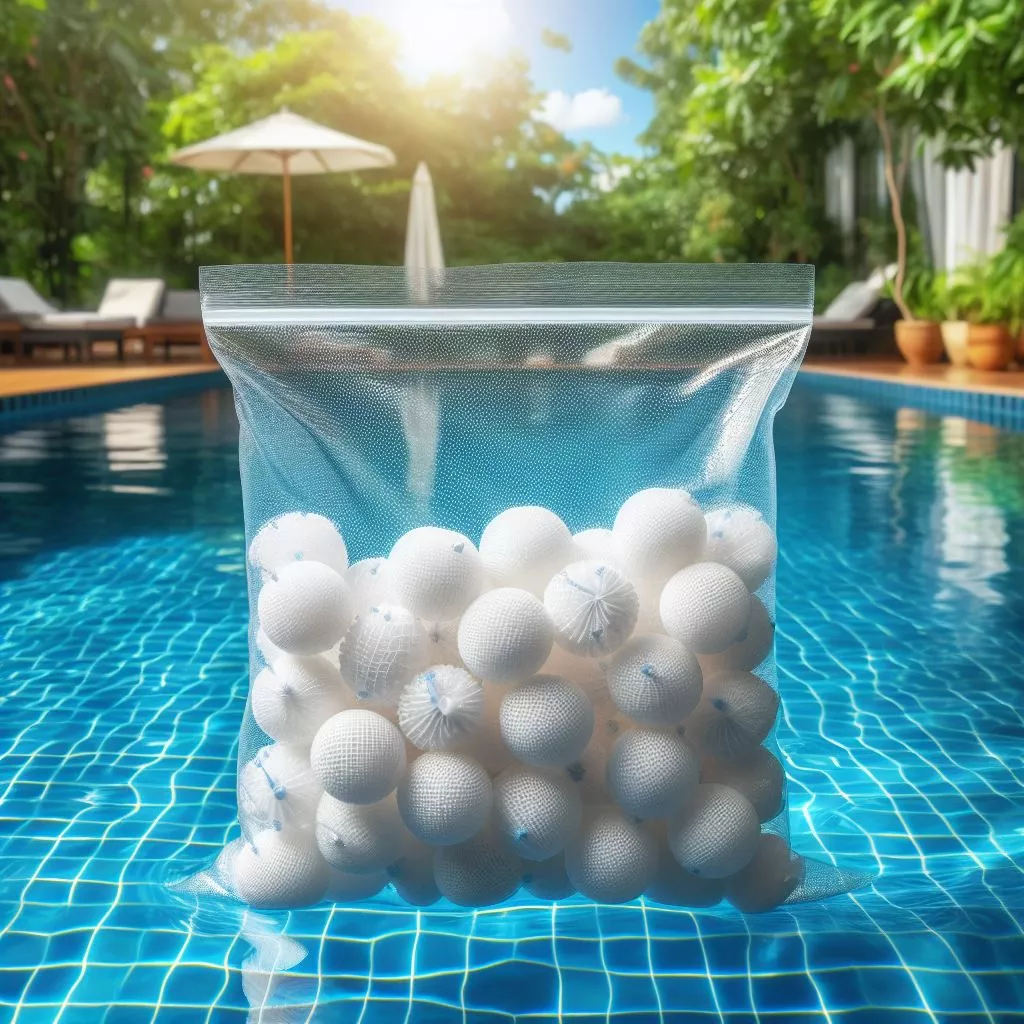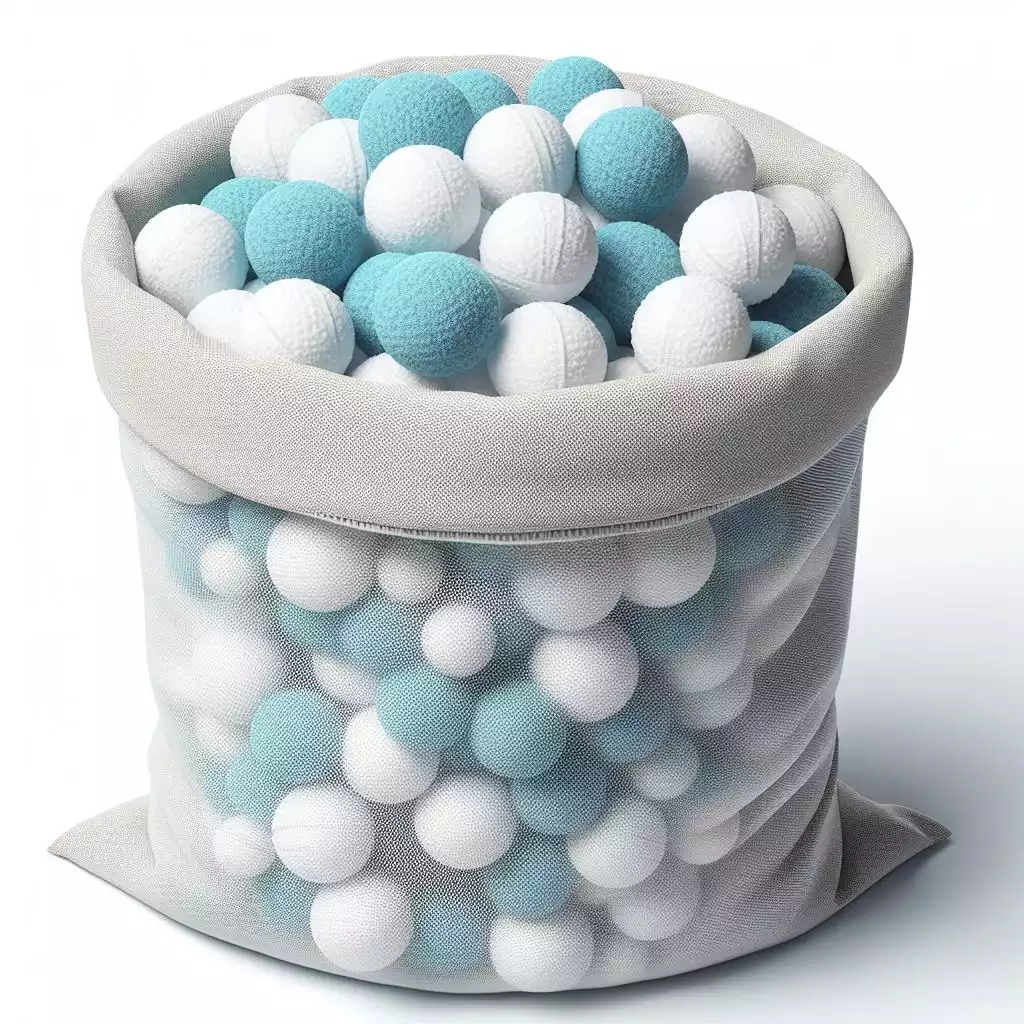Owning a pool is wonderful, but keeping the water clear and clean is essential for every pool owner. Filter balls for pool are a new type of filter media that are increasingly popular due to their efficiency and eco-friendly nature. But how do you determine if your pool filter balls are actually working well? In this article, we will explore this question in detail from a practical perspective.
Understanding Pool Filter Balls
Before delving into how to determine the quality of your pool filter balls, it’s important to understand what pool filter balls are and how they work. Pool filtration balls are typically made from polyester fibers or other high-molecular materials. Their main function is to capture impurities and fine particles in the water through their fibrous structure. This type of filter media can replace traditional sand or paper filters, offering higher efficiency and longer service life.
Checking the Filtration Effectiveness
To determine if your pool filtration balls are effective, you need to regularly test the water quality of your pool. Here are some common methods for testing water quality:
- Water Clarity: Clear water is the most direct indicator of the filter balls’ effectiveness. Good filter balls should effectively remove suspended matter, keeping the water clear and transparent. If the water remains cloudy even after multiple filtering attempts, this might indicate poor filter performance.
- Chlorine Balance: Using chlorine tablets is crucial for maintaining pool water quality. If the filter balls can effectively filter impurities from the water, the chlorine consumption will also decrease. Regularly testing the chlorine levels in the water can help you observe if the filter balls are helping maintain stable water quality.
- Impurity Levels in Water: Using professional water testing equipment to measure the amount of fine particles and impurities can more precisely evaluate the performance of the filter balls. They should significantly reduce these impurities, keeping the water pure.
- Filter System Pressure: Regularly check the pressure gauge on the filter system. High pressure might indicate that the filter balls are clogged and need to be cleaned or replaced.

Maintenance and Lifespan of Filter Balls
Good pool filtration balls should not only have excellent filtering effectiveness but also a long lifespan. Proper maintenance is key to ensuring the long-term effectiveness of the filter balls.
- Regular Cleaning: Filter balls accumulate a lot of impurities over time, so they need to be cleaned regularly to maintain their effectiveness. Depending on usage, you might clean the filter balls monthly or quarterly.
- Observing Replacement Time: Despite their long lifespan, filter balls will eventually degrade. When cleaning no longer restores their effectiveness, it’s time to replace them with new ones.
- Routine Inspection: Regularly inspect the condition of the filter balls to ensure they are not damaged or excessively worn. Replace them promptly if any issues are found to ensure optimal filtration.
Installation and Optimal Use
Proper installation and use are crucial to ensuring the best performance of filter balls for pool. Here are some practical tips:
- Pre-installation Preparation: Before installing filter balls, make sure the filtration system is clean and free of debris. Place the filter balls evenly in the filter, avoiding overpacking to ensure smooth water flow and optimal filtration.
- Avoid Overloading: Do not fill too many filter balls at once, as this can obstruct water flow and reduce effectiveness. Add filter balls according to the filter’s capacity.
- Maintain Sealing: Check the filter’s seals to prevent water leaks and air entering the system. Poor sealing can affect the efficiency of the filter balls.
Environmental and Economic Benefits
Using pool filtration balls not only improves pool filtration but also offers significant environmental and economic benefits. Compared to traditional sand or paper filters, filter balls can be reused, reducing waste.
- Water and Energy Saving: Filter balls require less water for cleaning, significantly saving water. Their high efficiency also reduces the workload on the water pump, saving energy.
- Reduced Chemical Use: Effective filtration reduces the need for chemicals like chlorine tablets, saving costs and minimizing environmental impact.
Common Problems and Solutions
During the use of pool filtration balls, you might encounter some common problems. Understanding these issues and knowing how to solve them helps maintain the filtration system effectively.
- Reduced Filtration Effectiveness: If effectiveness declines, check if the filter balls need cleaning or replacing. Also, check if other components of the filtration system are functioning properly.
- Decreased Water Flow: Reduced water flow may result from overpacked or clogged filter balls. Regular cleaning and proper installation can solve this problem.
- Excessive Impurity Accumulation: If filter balls accumulate a lot of impurities in a short time, it might be a water quality issue. Enhance water management and increase cleaning frequency.
Conclusion
Determining whether your pool filter balls are effective involves comprehensive evaluation from multiple aspects. By regularly testing water quality, properly maintaining filter balls, optimizing installation and use, referencing user feedback, and solving common problems, you can ensure that filter balls for pool perform optimally in your pool. We hope these suggestions help you manage and maintain your pool better, allowing you to enjoy clear, healthy pool water.

